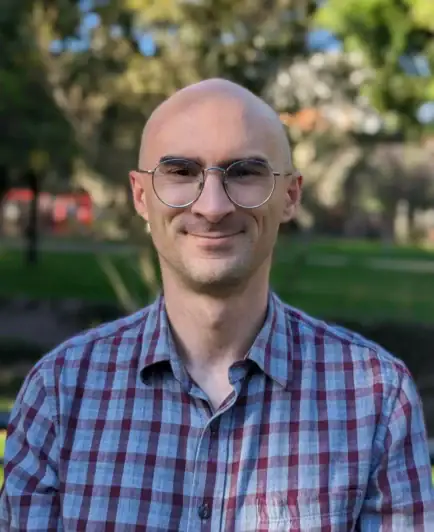The economist improving education policy with evidence
Mauricio Romero is conducting large-scale interventions to address the global learning crisis

Mauricio Romero researches how policy can improve educational outcomes. He also looks at the factors that keep policies from being effective. Annie Brookman-Byrne finds out more.
Annie Brookman-Byrne: How is your research seeking to address the global learning crisis?
Mauricio Romero: I am identifying and addressing the bottlenecks that impede high-quality public service delivery, especially in education, across low- and middle-income countries. Through large-scale field experiments in such countries as Tanzania, Mexico, Liberia, Guatemala, India, and Colombia, I study how various policy interventions—like school grants, teacher incentives, management training, public-private partnerships, and personalized learning programs—can boost student learning outcomes.
Even before COVID-19, more than half of children in many developing countries were unable to read and understand basic texts by age 10. The pandemic has exacerbated these inequalities dramatically. By determining why certain interventions succeed or fail, I want to provide policymakers with actionable insights and evidence-based strategies. The goal is to fundamentally transform education systems globally, so that all children can reach their full potential.
“The goal is to fundamentally transform education systems globally, so that all children can reach their full potential.”
ABB: What are the biggest challenges you encounter in your research?
MR: Education outcomes are the product of several interacting factors, making it difficult to pinpoint precisely which inputs or policies yield positive results. For instance, providing funding or textbooks often fails to improve learning if there are barriers like teacher absenteeism, inadequate teacher training, or poor management. I use large-scale randomized controlled trials (RCTs) to assess which interventions work best and under what conditions. However, these experiments require substantial logistical coordination with schools, governments, and other stakeholders (such as donors, NGOs, and multilateral agencies) as well as extensive data collection.
Another major challenge is ensuring that robust research findings translate into meaningful policy change. Political shifts, budget constraints, and institutional resistance can be hurdles to change. For example, my research on public-private partnerships in Liberia illustrated how contract design and enforcement can significantly affect policy outcomes like equity and sustainability, highlighting the importance of careful oversight by policymakers. Although we did our best to disseminate the findings, few changes were ultimately made in how the policy was implemented.
Finally, interventions that are successful in one context might not replicate well elsewhere. We need to adapt and work closely with local stakeholders to ensure that research-informed policies are effectively scaled and sustained.
ABB: How will your research ultimately help children?
MR: The world is rapidly evolving, and we don’t know precisely which advanced skills children will require in the future. I focus on foundational numeracy and literacy, as these skills are the building blocks for any advanced learning or adaptation that children will need, regardless of how economic, technological, or social landscapes change. Ensuring universal foundational skills makes children more adaptable, resilient, and better prepared to acquire whatever specialized knowledge or abilities future scenarios might demand.
ABB: Do you have any practical tips for caregivers and educators based on your research?
MR: First, prioritize foundational numeracy and literacy skills, because they determine children’s long-term academic and life outcomes. Tracking these skills early on will show whether children have truly mastered essential concepts rather than just progressing through curriculum milestones.
Second, teach each child at the right level, because personalized instruction improves learning. My research shows that interventions that match teaching to a child’s individual skill level—such as tailored tutoring or adaptive learning technology—are among the most effective approaches to increase learning. If possible, educators should regularly evaluate students’ skills and adjust their teaching accordingly. Caregivers can help by identifying children’s strengths and weaknesses, and by offering extra practice at home to specifically target areas needing improvement.
“Teach each child at the right level, because personalized instruction improves learning.”
ABB: What changes would you like to see in education systems?
MR: I’d like to see the teaching force strengthened through incentives and accountability. Educators are the largest component of educational budgets, and it is essential for schools to attract and retain high-quality, effective teachers. My research shows that education systems improve when they combine strategies to attract talented educators, retain educators who are effective, and hold them accountable for their performance. Competitive incentives—both financial and non-financial—can be helpful in recruiting and retaining talented educators, while clear accountability measures ensure that teachers consistently meet expectations.
Healthy learning environments can help students learn. For example, my recent studies on air pollution in classrooms show that improving air quality can enhance student performance. Simple, cost-effective interventions—like installing air filters to reduce pollution—can improve children’s concentration and cognitive performance.
ABB: What’s the most exciting research happening now?
MR: One of the most promising areas focuses on understanding how best to engage the private sector to enhance educational equity and efficiency. Many low- and middle-income countries have seen rapid growth in low-cost private schooling that caters to low-income families. I am investigating how to leverage the private sector to improve the quality of public education without compromising equity. This research will directly inform policymakers globally, helping them design public-private partnerships that balance efficiency gains with equitable access.
I am also excited about recent advancements in adaptive learning tools that allow for highly personalized educational experiences. These technologies match instructional content dynamically to individual students’ skill levels, enhancing their engagement and learning outcomes. Continued advances promise to make these educational technologies more effective, accessible, and affordable.
Footnotes
Mauricio Romero is an Associate Professor of Economics at Instituto Tecnológico Autónomo de México (ITAM). Mauricio was born and raised in Colombia, where he earned a BA in economics (summa cum laude) and a BA in mathematics (cum laude) from Universidad de los Andes. He completed a PhD in economics at the University of California, San Diego.
Mauricio’s research centers on improving public education systems in developing countries through evidence-based policies. In countries such as Mexico, India, Liberia, and Tanzania, he provides policymakers with practical solutions to enhance education quality, equity, and resilience.
Mauricio’s website, and Mauricio on X and Bluesky.
This interview has been edited for clarity.

